
翰文国际名师|杨彭:用镜头记录日本的点滴——《日本文化漫谈(一)》
2020年05月06日 0 不详
本篇文章采用中英双语编写,方便各位师生一同交流学习英语。
This article is written in both Chinese and English, which is convenient for teachers and students to learn and discuss English learning process together.

杨彭 Yoko
云南翰文教育投资集团
云南经济管理学院
日语教师
日本横滨市立大学硕士
七年系统日语教育背景
摄影爱好者
Yang Peng, Yoko
Yunnan Hanwen Education Investment GroupYunnan University of Business Management
Japanese Teacher
Master From Yokohama City University, Japan
Seven Years of Systematic Japanese Education Background
Shutterbugs

“山川异域,风月同天。”
“Mountains and rivers are different, but the wind and the moon are the same.”
前言 Foreword
很小的时候,我便乐于欣赏身边的风景,从窗台的青苔,到拂晓的红日。渐渐地开始养成了用相机纪录身旁美景的习惯。出于对摄影的热爱,慢慢地开始喜欢上了我们的东瀛近邻——日本。于是决定选择就读日语专业,并在大学毕业后只身前往日本继续学习,同时用自己的方式记录和品味着日本的风土人情。
When I was very young, I was happy to enjoy the scenery around me, from the moss on the windowsill to the rising sun at dawn, I gradually began to develop the habit of using the camera to record the beautiful scenery around. Out of love for photography, I have risen my interest in our neighbor, Japan. So I decided to study Japanese and go to Japan to continue my study after graduation. At the same time, I recorded and enjoyed the local customs and views of Japan in my own way.
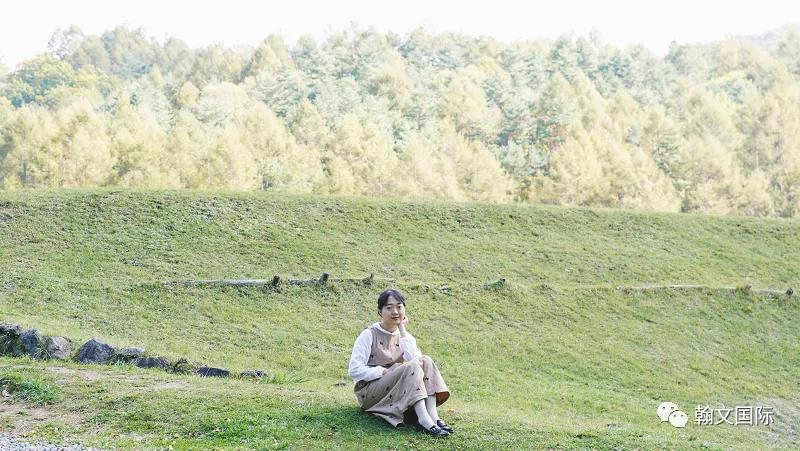
(留学日本期间的我)
(When I was studying in Japan)
中日文化同宗同源,又因为地理和历史的缘故,各自发展出了独特的文化与习俗。在我眼中,想要学好一个国家的语言,必须先了解这个国家的文化、社会和历史。在日本学习的四年时间里,让我更深刻地体会到了中日文化中的相似与不同。我认为让学生们更好地了解日本文化是学好日语的基础,更是促进中日理解,加深中日友谊的基础。所以我想在这里和大家分享一些我在日本生活的点滴和自己对日本文化的理解,方便大家了解熟悉而又陌生的日本。
Both Chinese and Japanese cultures share the same origin, and because of geography and history influences, they have developed their own unique cultures and customs. In my opinion, to learn a country's language well, we must first understand its culture, society and history. In the four years of studying in Japan, I have deepened my understanding on the similarities and differences between Chinese and Japanese cultures. I think it's essential to learn about Japanese culture in order to learn Japanese language well, as well as enhance the understanding between China and Japan and improve the friendship between China and Japan. So I want to share with you some of my life in Japan and my understanding of Japanese culture, so that you can understand our neighbor Japan better.
《日本文化漫谈・一》
Japanese Culture Ramble
Chapter One
大家好,随着社会科技的发展以及中日交流的增加,我们接收到的关于日本文化的信息也越来越多。相信大家都曾在电视上或是书中看到过很多有关日本文化的东西,那么今天就在这里简单地为大家介绍一下,作为现今世界上现存的仅有的37个君主立宪制国家之一,并且和中国渊源颇深的日本的“国名”,以及日本的“年号”,有着怎样的历史由来。
Hello everyone, with the development of social science and technology and the increase of Sino-Japanese exchanges, we have received more and more information about Japanese culture. I believe that you have seen a lot about Japanese culture on TV or from books. Today, I'd like to briefly introduce to you the historical origin of Japan's "name" and "era" as one of the only 37 constitutional monarchy countries in the world.
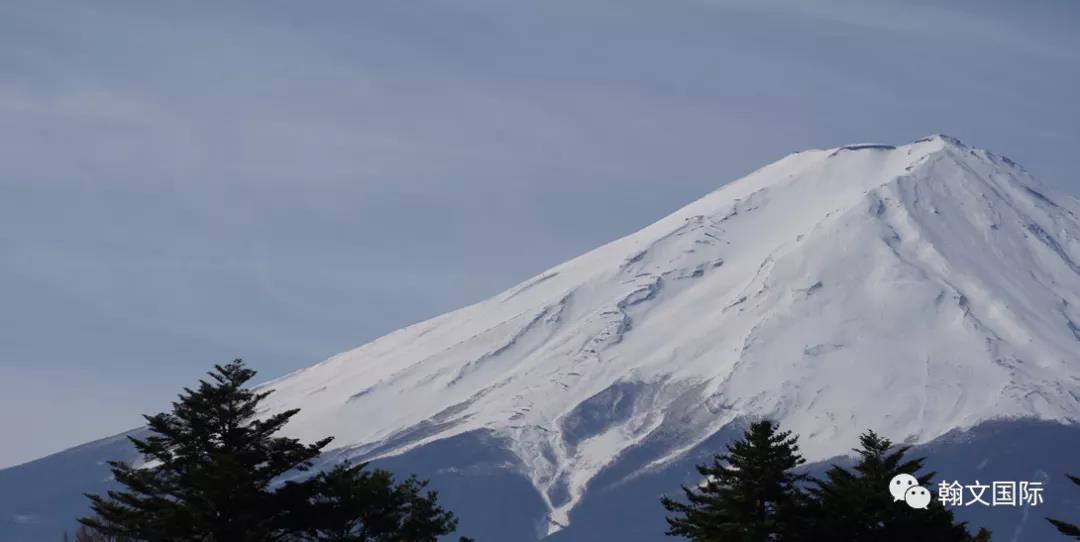
(日本名山“富士山”)
(Mount Fuji)
01 日本的国名是怎么得来的?
How did the name of Japan come from?
据说8世纪初受天皇谕旨出使中国(隋唐)的使者,称其来自于“日出之国”,被认为是日本国名的起源。“日本”作为国名正式在世界上使用时进入明治时代以后。除了这一正式称号以外,还有“大和(Yamato)”的雅称。
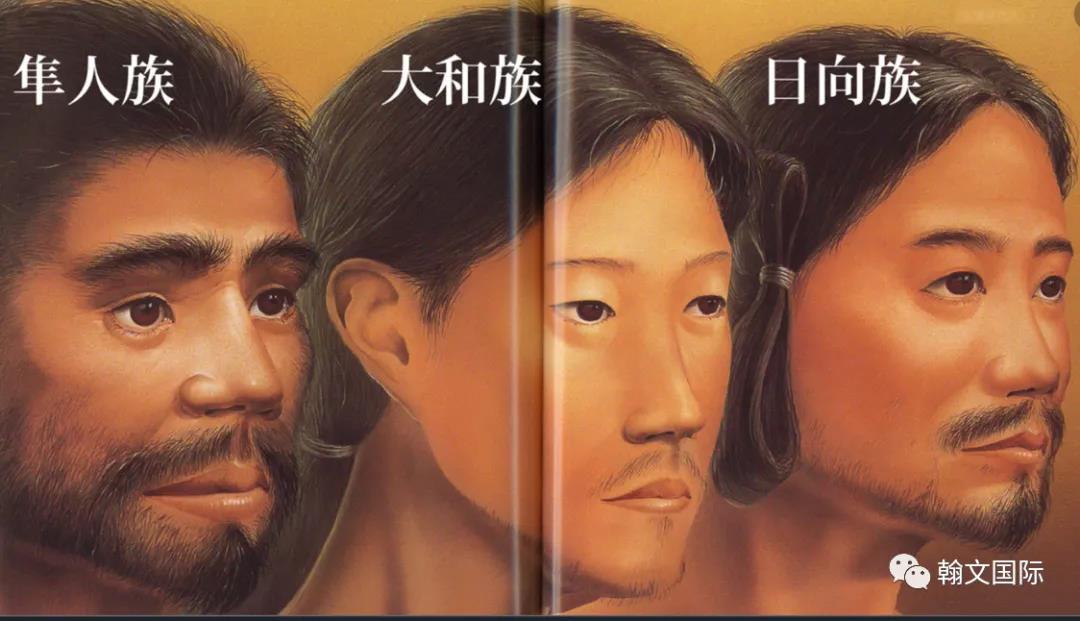
(计算机模拟的大和民族长相图)
(Yamato ethnic features simulated by computer)
It is said that the emissaries who were sent to China (Sui and Tang Dynasties) by the emperor's order in the early 8th century claimed that they came from "the country of sunrise", which is considered to be the origin of the name of Japan. When "Japan" was officially used in the world during the Meiji era. In addition to this official title, there is also the elegant name of Yamato.
02日本的年号是什么的?
What is the Era Name of Japan?
日本的年号受中国文化的影响,自7世纪飞鸟时代就开始使用了。一般在天皇即位时制定新的年号,但在发生巨大自然灾害时为了一新人心也会更改年号。明治维新以后规定天皇在位期间只用一个年号。
Influenced by Chinese culture, Japan's era naming system has been used since the era of asuka (flying bird) in the 7th century. Generally, when the emperor ascends the throne, a ear name will be made, but in case of a huge natural disaster, the name could also be changed to encourage people. After the Meiji Restoration, it was stipulated that the emperor would only have one ere name during his reign.
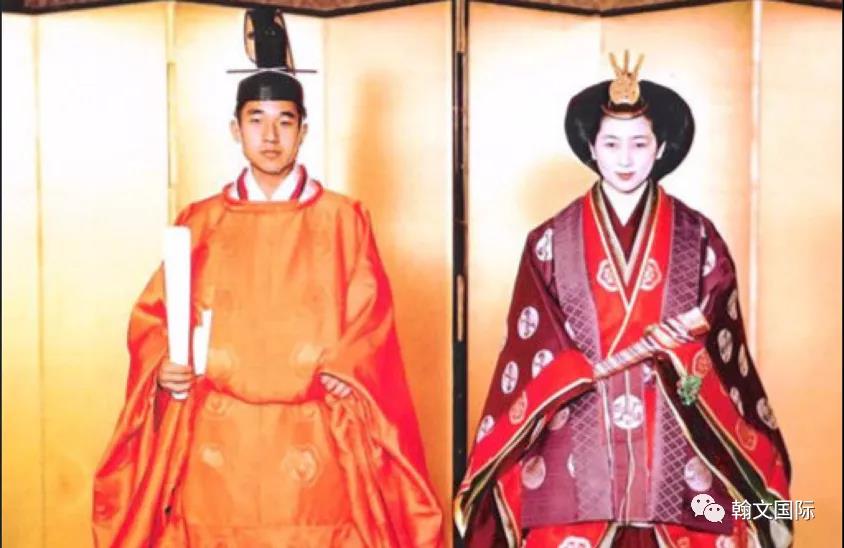
(明仁天皇和皇后美智子结婚时候的照片)
(Picture of Emperor Akihito and Empress Michiko When They Married)
日本的年号受中国文化的影响,自7世纪飞鸟时代就开始使用了。一般在天皇即位时制定新的年号,但在发生巨大自然灾害时为了一新人心也会更改年号。明治维新以后规定天皇在位期间只用一个年号。
Influenced by Chinese culture, Japan's era naming system has been used since the era of asuka (flying bird) in the 7th century. Generally, when the emperor ascends the throne, a ear name will be made, but in case of a huge natural disaster, the name could also be changed to encourage people. After the Meiji Restoration, it was stipulated that the emperor would only have one ere name during his reign.
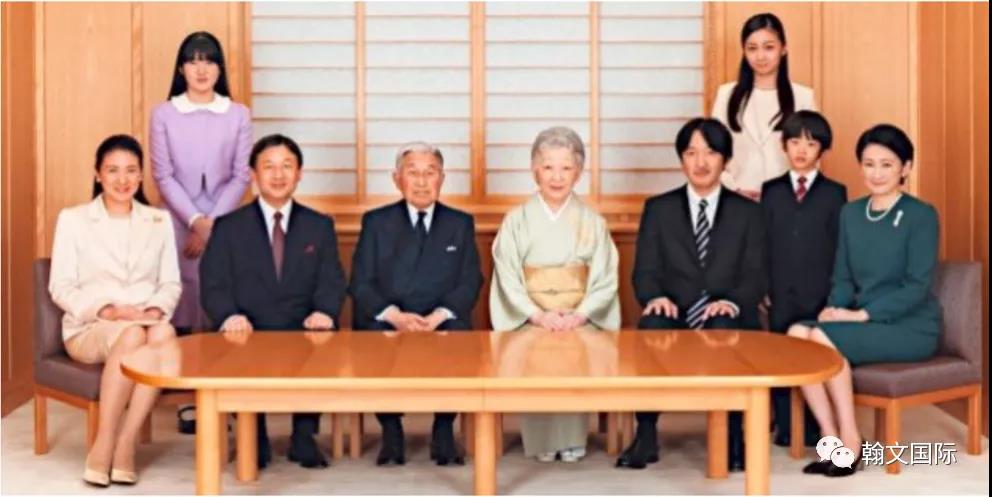
(平成明仁天皇一家(中)和他的长子令和天皇德仁一家(左)以及次子秋篠宮文仁親王一家(右))
(Emperor Akihito’s family (middle), his eldest son Emperor Naruhito’s family (left) and his second son Imperial Prince fumihito’s family (right))
值得一提的是,直到现在,日本的年号一般都是出自中国传入日本的古书籍。多数是《四书五经》等唐代之前的古典文献。比如“昭和”出自《尚书》的“百姓昭明,协和万邦”;“平成”出自《史记》的“内平外成”和《尚书》的“地平天成”。因为此前负责选择年号的专家多由通晓中国古典文化的学者担任。
It is worth mentioning that up to now, the era names of Japan are generally from ancient books introduced into Japan by China. Most of them are classical documents before Tang Dynasty, such as the “Four Books and Five Classics”. For example, " Syowa" comes from "The duties of all the officials have been identified, so that all the vassals of all countries in the world can coordinate and be obedient, and the people naturally become kind and happy." in "Shangshu"; and " Heisei" comes from " Both inside and outside, between heaven and earth, are peaceful." in "Shiji" and " Everything is arranged properly.” in "Shangshu". Thus, bacak then, the experts who were responsible for choosing the era names were mostly scholars who were familiar with Chinese classical culture.
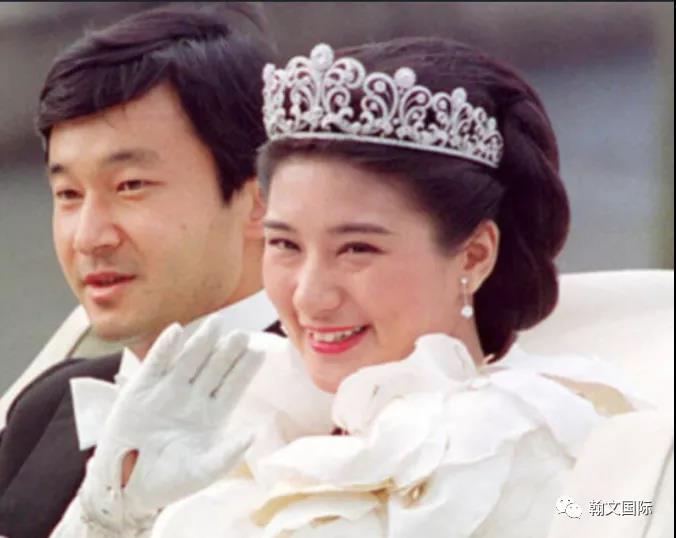
(令和天皇德仁和皇后雅子当年世纪婚礼时的照片)
(Wedding photos of Emperor Deren and Empress Yazi)
去年更新的年号“令和”,出处虽然是日本古籍《万叶集》第五卷《梅花歌卅二首并序》中的“于时初春令月,气淑风和”,但这句诗也是化用了东汉张衡的《归田赋》 “于是仲春令月,时和气清”。“令”字表示美好,“和”字表示顺利,同时也是日本民族的名字。日本首相安倍晋三发布了新年号的含义:“令和”出自《梅花之歌》,寒冷的冬天过去就是春天,希望每个人都像盛开的梅花一样对未来充满希望。安倍说,在感恩和平时光的同时,也决心与国民一起开拓充满希望的新时代。希望新年号能广泛被国民接受,进而植根于每个日本人的生活中。
Last year's new ear name,"Reiwa", is originated from the Japanese ancient book "Manyoshu/Ten thousand leaves", Volume 5, "Thirty-two Songs of Plum Blossom in Parallel", which said "in the early spring of the time, the weather is gentle and nice", but this poem also was inspired by a Eastern Han Dynasty poet zhangheng in his poem of "Gui tian Fu" which said "So in the middle of the spring, the weather is nice and clear". The character "Rei/令" means good, and the character "Wa/和" means smooth. It is also the name of the Japanese nation. Japanese Prime Minister Abe has released the meaning of the new era name: "Reiwa" comes from the “Song of Plum Blossom”. After the cold winter pasted, there is the spring. It brings the hope of everyone would be as exciting about the future as the blooming plum blossom. Abe said that while appreciating the peaceful time, he was determined to work with the people to open up a new era of hope. It is hoped that the new ear name will be widely accepted by the people, and then rooted in the life of every Japanese.
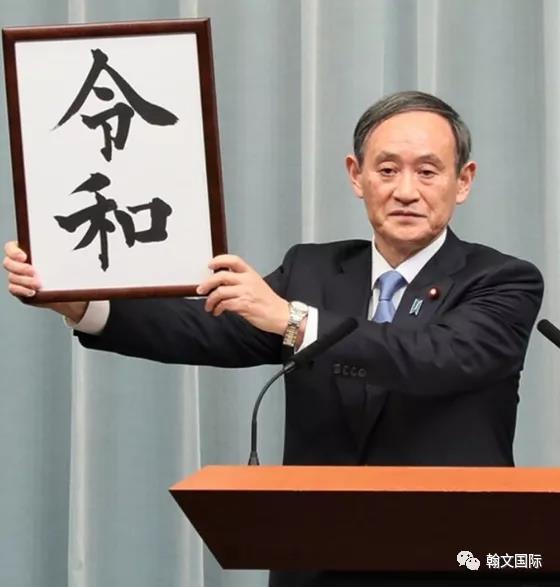
(内閣官房長官于2019年4月1日公布新年号“令和”)
(On April 1, 2019, Chief Cabinet Secretary announced the new era name of “Reiwa”)

(近一百年来日本年号一览表)
(Japanese Era and Emperor names in the past years)
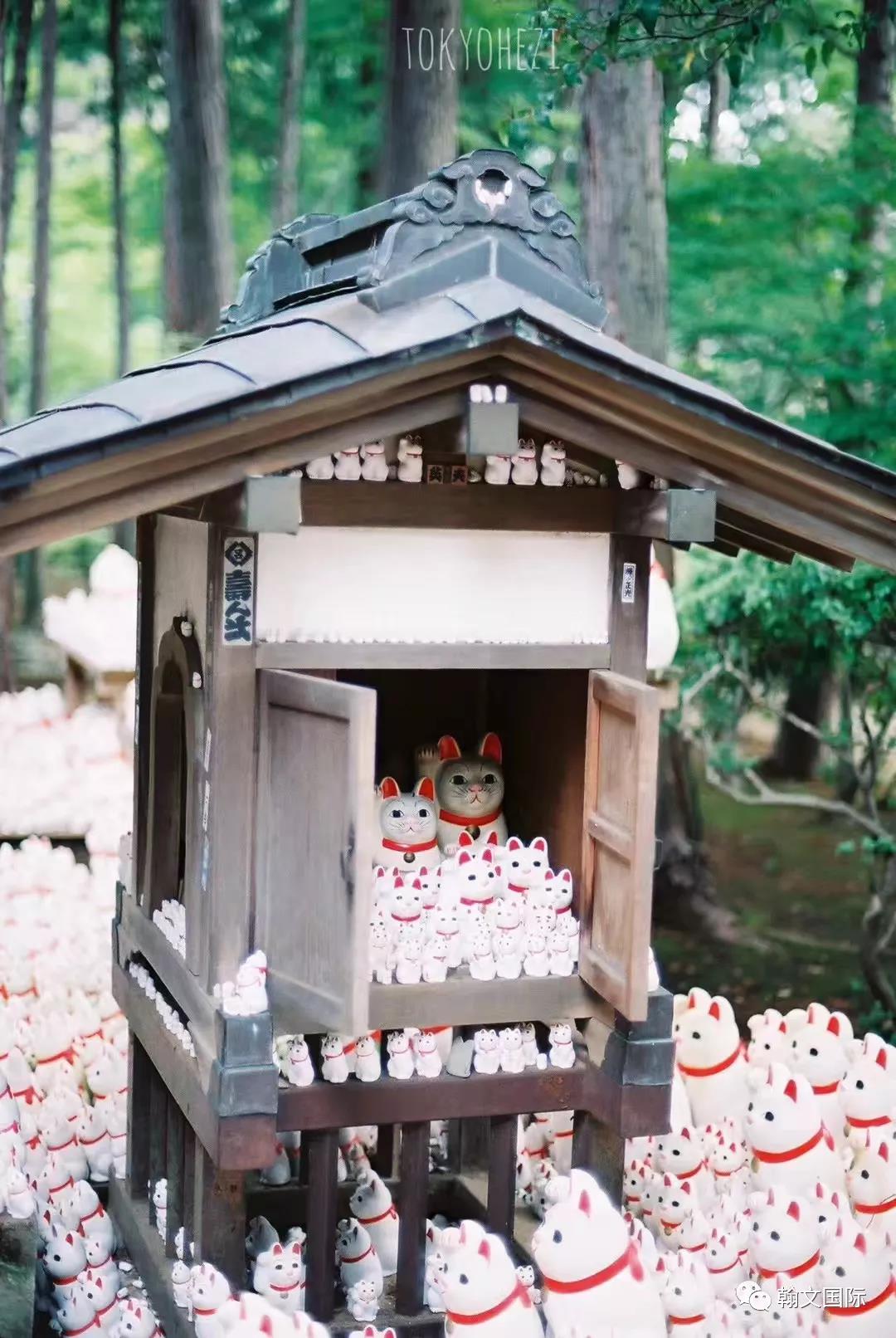
(我的镜头下的日本)
(Japan in My Camera)
日本天皇制延续到今天,从神话传说的“神武天皇”到“令和天皇”已经是第126代了,日本自1185年镰仓幕府建立至1867年大政奉还,天皇权力被架空六百八十二年之久,明治维新之后日本逐渐走上军国主义道路,昭和天皇指挥策划相继发动日本侵华战争和太平洋战争等侵略战争,给亚洲及世界各国人民以巨大深重的灾难。二战后期日本以无条件投降为条件,使天皇作为象征性国家元首保留了下来。1946年,美国迫使昭和天皇发表人间宣言,否定其人间“神”的地位,承认其不再具有神性,但是日本人民的心里还是认为天皇是神。依照《日本国宪法》,天皇如今主要职责为任命内阁总理大臣,批准法律、政令及条约,召集国会,批准国务大臣的任免,出席礼仪性外交事务活动和国家仪典等。
Japan's Mikado system, continuing to this day, has past 126th generation from the mythical "Emperor Jinmu" to Emperor "Reiwa”. From the establishment of “Kamakura Shogunate” in 1185 to the “Return of the Great Power” in 1867, the Mikado's power has been suspended for 682 years. After the Meiji Restoration, Japan gradually embarked on the path of militarism. Under the command and planning of emperor Showa, Japan launched the injustice war against China and the Pacific War, etc. These wars had caused enormous pains and disasters to people in Asia and all over the world. After the World War II, Japan surrendered unconditionally, which made the emperor a symbolic head of state. In 1946, the United States forced Emperor Showa to issue a declaration to the world, denying his status as the "God" of the Japan and admitting that he no longer had divinity, but til this day, same Japanese people still believe that the Emperor is a God for them. According to the constitution of Japan, the emperor is now mainly responsible for the appointment of cabinet ministers, the approval of laws, decrees and treaties, the convening of Parliament, the approval of the appointment and removal of Prime Ministers, and to attend ceremonial foreign affairs activities and national ceremonies.

(我的镜头下的日本)
(Japan in My Camera)
那么,关于“日本的国名”、“年号“和皇室的一些知识,我们这期介绍就到这儿,如果你对日本文化感兴趣,千万不要错过我们今后将持续更新的内容,下次见~!
So, this is the end of our the brief introduction of Japan's name, Era name and royal family . If you are interested in Japanese culture, don't miss the content that we will continue to update in the future. See you next time ~!
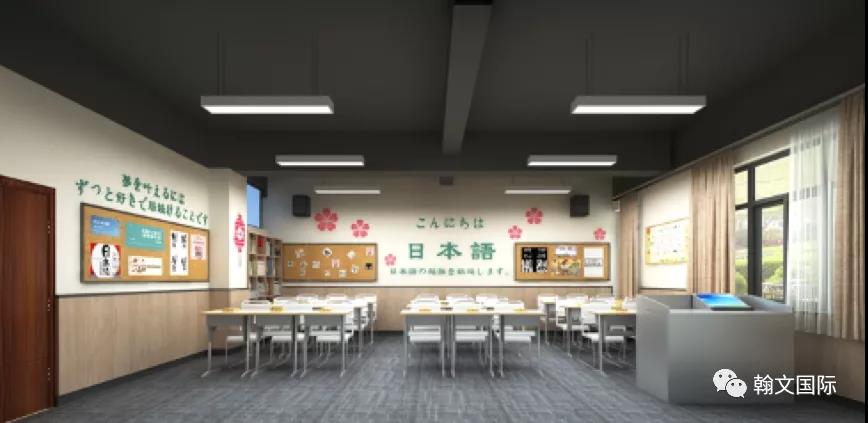
(翰文国际日语教室效果图)
(Design of Hanwen International Japanese Classroom)
目前集团和学校正在积极拓展与日本院校和企业的合作模式与纬度,为广大有需求的学子打造一流的赴日实习、就业和留学深造的高质量平台。集团和学校即将推出英语、德语、日语、泰语、韩语等多语种语言强化课程,丰富师生提升语言能力的渠道。敬请大家持续关注翰文国际公众号平台,了解更多国际化海外项目资讯及各语种语言强化培训课程信息!

